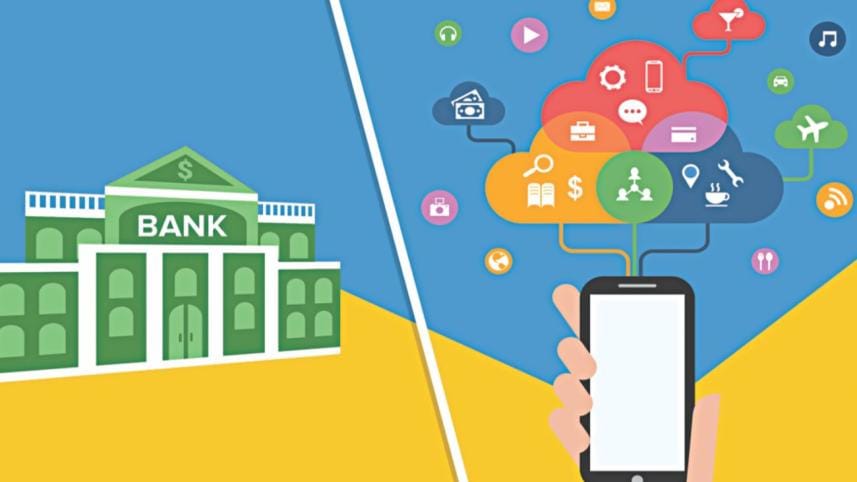Quirks of banking and payment systems

We have some of the strangest banking and payment system strictures in the world. I bet you have had a cheque returned at least once in your life because they say the name did not match the beneficiary account, but you could not find anything wrong despite checking the name over and over again to no avail. Then let me expound: these days, some banks return cheques with conventional honorifics before the payee's name such as Mr, Ms, Mrs, or Dr. They claim that Bangladesh Bank (BB) auditors hassle them if the payee's description does not match the name in the account letter. Since when BB auditors have become so obsequious in literal compliance that they fail to distinguish names from honorifics? No country in the world does this. This type of "masi-mara-kerani" modus operandi is at the root of the red tape in our government and state machineries.
This cannot be a technology limitation if that is the excuse used since BB uses an online cheque processing system, namely Bangladesh Automated Clearing House (BACH). The system has been around for many years and that never gave any cause to quibble over honorifics. Besides, BACH can be easily programmed to ascertain names and honorifics without causing any false rejections just because of the honorific before a name. If the banks say that the limitation is due to the Core Banking System (CBS) used by the bank, then it is also inexcusable. Information technologies exist to make life easier for people and not the other way around. No modern CBS can have such ludicrous shortcomings. If technology is not to blame, then how is it that Bangladesh Bank even imposes such discourteous mannerisms that force people to write a cheque to a lady and mention her name without a Ms or Mrs before her name? Or Begum or Janaba when writing the name in Bangla?
Another quirk of the banking system is what they call a "positive pay instruction" by which they force an account holder to sign a form every time s/he cuts a cheque for more than or equal to taka one lakh. This is absolute nonsense! A cheque is the standard instrument accepted by all parties as an intent to pay any amount the account holder pleases as long as the account has sufficient funds to cover the cheque. This bogus paper form only adds to piles of rubbish at the banks, and there is simply no way anyone from Bangladesh Bank will ever find this paper of any use other than contributing to the destruction of a few more trees through unnecessary paper wastage.
We also find that BB has chosen a "go slow" approach when it comes to allowing modern payment processes such as digital wallets. While we can understand the central bank's apathy towards digital assets such as cryptocurrencies like BitCoin, Ethereum and others—as these are still very volatile and intangible—but sitting on applications for months on end and not allowing new payment processes to offer services in the market is a sheer avoidance of fiduciary responsibility. A central bank has to make sure people's money is safe but it also has to make sure people have an easy and traceable way to move money around using modern tools. In this instance, apathy and inaction cause people to lose faith in the BB as an institution that has to safeguard their fiat currency assets. Our monetary assets, strictly speaking, are also intangible—currency has no intrinsic value other than the value assigned to it by the monetary system that is controlled by the central bank. While we expect the central bank to have a consistent and stable monetary policy, in this day and age, we also expect our central bank not to stifle tools and systems available in the market that help us move our money around in a transparent and traceable manner.
The absence of widely available digital wallets not only hinders monetary mobility, it is also seen as a primary stumbling block in the way of a burgeoning e-commerce market here. While e-commerce is all the rage in many Asian countries such as China and India, where rapidly growing e-commerce behemoths such as TenCent or BigBasket are going head to head with e-commerce giants from the developed economies of the world, such enterprises in this country are severely emasculated for want of digital wallets that make online transactions easy and secure.
In the last ten years, BB has shown some appetite for modern money transfer systems based on mobile phone networks such as BKash, Rocket and others. These days, the volume of transactions on mobile money platforms rival that of conventional banking transactions. However, mobile money transactions are largely point-to-point fund transfers (usually small sums as mandated by BB regulations). A vast majority of these transactions are between mobile money "agents" or service points, the transactions being carried out on behalf of third parties who remain anonymous when it comes to assigning responsibility.
If anything, BB needs to double up its efforts to introduce more and more digital wallets which are fully transparent and traceable, as opposed to mobile money transactions which are in most instances anonymous and untraceable.
And while we do that, we certainly don't want to insult our aunts and uncles when we write a cheque or make a digital transfer by sanitising the honorific before their names. Let good sense prevail and let us all win.
Habibullah N Karim is an author, policy activist, investor and serial entrepreneur. He is a founder and former president of BASIS and founder/CEO of Technohaven Company Ltd.
Email: hnkarim@gmail.com




Comments